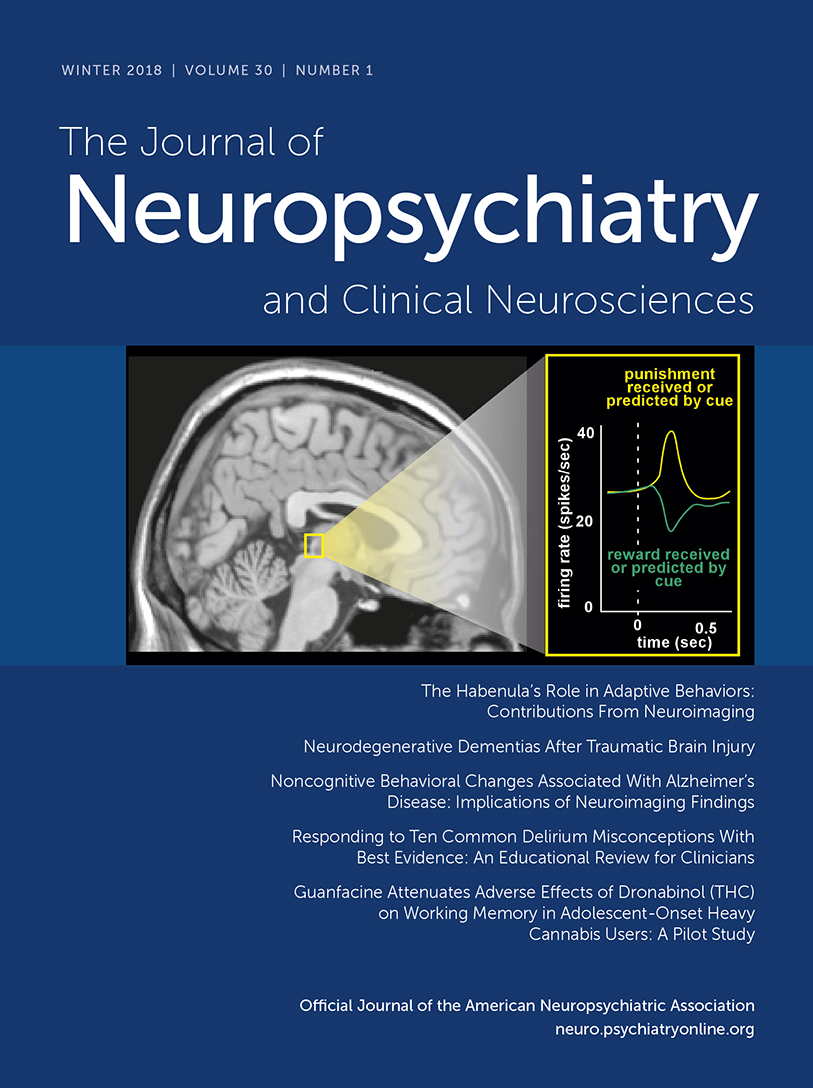Guanfacine Attenuates Adverse Effects of Dronabinol (THC) on Working Memory in Adolescent-Onset Heavy Cannabis Users: A Pilot Study
Abstract
The cannabinoid-1 receptor (CB1R) agonist Δ9-tetrahydrocannabinol (THC), the main psychoactive constituent of cannabis, adversely effects working memory performance in humans. The α2A-adrenoceptor (AR) agonist guanfacine improves working memory performance in humans. The authors aimed to determine the effects of short-term (6 days) treatment with guanfacine on adverse cognitive effects produced by THC. Employing a double-blind, placebo-controlled crossover design, the cognitive, subjective, and cardiovascular effects produced by oral THC (20 mg) administration were determined twice in the same cannabis users: once after treatment with placebo and once after treatment with guanfacine (3 mg/day). Compared with performance at baseline, THC negatively affected accuracy on spatial working memory trials while participants were maintained on placebo (p=0.012) but not guanfacine (p=0.497); compared with placebo, accuracy was significantly (p=0.003, Cohen’s d=–0.640) improved while individuals were treated with guanfacine. Similarly, compared with baseline, THC increased omission errors on an attentional task while participants were maintained on placebo (p=0.017) but not on guanfacine (p=0.709); compared with placebo, there were significantly (p=0.034, Cohen’s d=0.838) fewer omissions while individuals were maintained on guanfacine. Although THC increased visual analog scores of subjective effects and heart rate, these increases were similar during treatment with placebo and guanfacine. THC did not significantly affect performance of a recognition memory task or blood pressure while individuals were maintained on either treatment. Although preliminary, these results suggest that guanfacine warrants further testing as a potential treatment for cannabis-induced cognitive deficits.



